 2 citations,
May 2021 in “Journal of pharmaceutical and biomedical analysis”
2 citations,
May 2021 in “Journal of pharmaceutical and biomedical analysis” A new method was developed to accurately detect and measure 47 different drug ingredients in various products.
[object Object] 1 citations,
December 2021 in “American Journal of Obstetrics and Gynecology” Hair cortisol levels peak in the third trimester and decline postpartum.
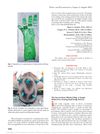 1 citations,
May 2015 in “Plastic and Reconstructive Surgery”
1 citations,
May 2015 in “Plastic and Reconstructive Surgery” The Sacred Heart Bilobed Flap is a surgical method for repairing small scalp defects with local flaps, relying on scalp elasticity and hair regrowth to hide any imperfections.
 1 citations,
January 2013 in “Mayo Clinic Proceedings”
1 citations,
January 2013 in “Mayo Clinic Proceedings” A woman's chronic headaches and hair loss were cured by treating her syphilis.
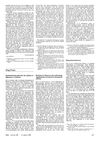 1 citations,
March 1989 in “The BMJ”
1 citations,
March 1989 in “The BMJ” A woman's hair grew back while she was taking sulphasalazine for arthritis.
 July 2024 in “Indian Journal of Dermatology Venereology and Leprology”
July 2024 in “Indian Journal of Dermatology Venereology and Leprology” Certain gene variations in PITX2 are linked to a higher risk of male pattern baldness in Indians.
 January 2024 in “Scientific reports”
January 2024 in “Scientific reports” Egyptian Mint effectively kills mosquito larvae and inhibits certain bacteria.
 January 2024 in “Annals of Dermatology”
January 2024 in “Annals of Dermatology” Korean Red Ginseng may help protect hair from damage and promote growth.

The hydrogel helps skin heal faster and better than a commercial dressing by creating a protective environment and supporting new blood vessel and hair growth.
 July 2021 in “Journal Für Ästhetische Chirurgie”
July 2021 in “Journal Für Ästhetische Chirurgie” Effective hair loss treatments require medical diagnosis and realistic expectations, with hair transplants offering improved, natural-looking results.
 December 2020 in “Journal of clinical and investigative dermatology”
December 2020 in “Journal of clinical and investigative dermatology” A man with syphilitic alopecia and neurosyphilis was successfully treated with penicillin, leading to symptom improvement and resolution of hair loss.
July 2019 in “Journal of Drug Delivery and Therapeutics” The method accurately measures finasteride in bulk and dosage forms.
 April 2018 in “Journal of Investigative Dermatology”
April 2018 in “Journal of Investigative Dermatology” Hydroxychloroquine may cause false results in tuberculosis tests for patients with autoimmune skin diseases.
 September 2014 in “SciBX”
September 2014 in “SciBX” JAK inhibitors may help treat alopecia areata and promote hair regrowth.
 June 2010 in “Melanoma research”
June 2010 in “Melanoma research” LDE225 is a promising skin-applied treatment for basal cell carcinoma with good skin penetration and effectiveness.
 July 2008 in “The Open Dermatology Journal”
July 2008 in “The Open Dermatology Journal” Instructional sheets can help patients manage hair disorders.
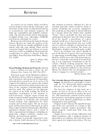 February 2004 in “Plastic and Reconstructive Surgery”
February 2004 in “Plastic and Reconstructive Surgery” The book gives a basic overview of cosmetic surgery topics but lacks depth and innovation, especially in hair restoration.
[object Object]  January 1992 in “Side effects of drugs annual”
January 1992 in “Side effects of drugs annual” Some people have severe allergic reactions to anthelminthic drugs, but these are often due to the parasites, not the drugs.
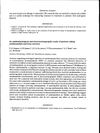 July 1989 in “British Journal of Dermatology”
July 1989 in “British Journal of Dermatology” Long-term use of canthaxanthin may cause reversible changes in the eye, including crystal deposits and altered vision responses.
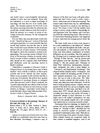 May 1985 in “Journal of The American Academy of Dermatology”
May 1985 in “Journal of The American Academy of Dermatology” The book "Diseases of the Hair and Scalp" has outdated information and confusing content, but may still offer some insights.
 191 citations,
November 1959 in “Annals of the New York Academy of Sciences”
191 citations,
November 1959 in “Annals of the New York Academy of Sciences” Hair and wool have complex microscopic structures with microfibrils and varying cystine content.
66 citations,
October 1987 in “The Journal of clinical endocrinology and metabolism/Journal of clinical endocrinology & metabolism” Measuring androstanediol glucuronide in blood is useful for assessing and tracking treatment in women with excessive hair growth.
 35 citations,
January 2019 in “Clinics in Dermatology”
35 citations,
January 2019 in “Clinics in Dermatology” Syphilis has a wide range of symptoms that can look like other diseases, and if not treated, it can progress to a more serious stage, especially in HIV-positive patients.
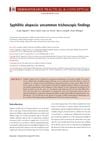 32 citations,
July 2017 in “Dermatology practical & conceptual”
32 citations,
July 2017 in “Dermatology practical & conceptual” New hair and skin changes were found in a rare case of syphilis-related hair loss.
 29 citations,
December 2011 in “British Journal of Dermatology”
29 citations,
December 2011 in “British Journal of Dermatology” A new hair treatment with caffeine and other ingredients makes hair thicker and less likely to break.
9 citations,
May 2021 in “BioMed research international” Human hair-derived particles can effectively carry and release the cancer drug Paclitaxel in a pH-sensitive manner, potentially targeting cancer cells while sparing healthy ones.
8 citations,
May 2005 in “Fertility and Sterility” A specific gene variation is linked to a higher risk of polycystic ovary syndrome in Caucasian women.
2 citations,
December 2022 in “The Journal of Dermatology” Patients with hidradenitis suppurativa have higher levels of cell-free DNA in their blood.
 2 citations,
December 2012 in “Acta Facultatis Medicae Naissensis”
2 citations,
December 2012 in “Acta Facultatis Medicae Naissensis” A man with HIV had hair loss due to syphilis, which improved after penicillin treatment.
 1 citations,
November 2023 in “Journal of neurology”
1 citations,
November 2023 in “Journal of neurology” A patient with a nerve disorder died from infection complications after developing insulin resistance from a treatment.
























